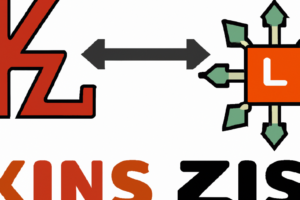
Introduction to Blockchain Technology and Its Potential
Blockchain technology is a decentralized and distributed ledger system that allows multiple parties to record and verify transactions securely and transparently. It was first introduced in 2008 by an anonymous person or group known as Satoshi Nakamoto as the underlying technology behind the cryptocurrency Bitcoin. However, blockchain technology has since evolved to have applications beyond just cryptocurrencies.
One of the key benefits of blockchain technology is its ability to provide trust and transparency in transactions. By using cryptographic algorithms and consensus mechanisms, blockchain ensures that all participants in a network have access to the same information and that the majority agrees upon any changes to the data. This eliminates the need for intermediaries and reduces the risk of fraud and manipulation.
The potential applications of blockchain technology are vast and varied. It can be used in supply chain management, finance, healthcare, real estate, e-commerce, energy, gaming, and even the legal industry. By leveraging the features of blockchain, these industries can improve efficiency, reduce costs, enhance security, and create new business models.
A Brief History of Blockchain and Its Evolution
The origins of blockchain technology can be traced back to the early 1990s when researchers started exploring the concept of a decentralized and distributed ledger. However, it wasn't until 2008 that blockchain technology gained mainstream attention with the release of Satoshi Nakamoto's Bitcoin whitepaper.
Since then, blockchain technology has evolved significantly. The first significant evolution was the introduction of smart contracts by Ethereum in 2015. Smart contracts are self-executing contracts with the terms of the agreement directly written into code. They allow for the automation of transactions and the elimination of intermediaries.
The emergence of cryptocurrencies also played a significant role in the evolution of blockchain technology. Bitcoin was the first cryptocurrency to be built on blockchain technology, but many others, including Ethereum, Ripple, and Litecoin, soon followed it. These cryptocurrencies introduced new features and functionalities like faster transaction speeds, scalability, and privacy.
Blockchain and the Supply Chain Industry: A Perfect Match
The supply chain industry faces numerous challenges, including more transparency, counterfeiting, and efficient processes. Blockchain technology can address these challenges by providing a transparent and immutable record of every transaction and movement of goods along the supply chain.
Using blockchain, companies can track and verify the origin and authenticity of products, ensuring they are not counterfeit or tampered with. This can help reduce the risk of fraud and protect consumers. Additionally, blockchain can streamline supply chain processes by automating tasks, reducing paperwork, and improving efficiency.
Real-world examples of blockchain in the supply chain industry include IBM's Food Trust platform, which allows retailers and consumers to trace the journey of food products from farm to table, and Maersk's TradeLens platform, which digitizes and automates global trade processes, reducing paperwork and improving efficiency.
How Blockchain is Disrupting the Financial Services Industry
Complex and slow processes, high costs, and a need for more transparency characterize the traditional financial services industry. Blockchain technology has the potential to revolutionize the industry by providing faster, cheaper, and more secure transactions.
Using blockchain, financial institutions can eliminate the need for intermediaries, such as banks and clearinghouses, and reduce the time and cost associated with cross-border transactions. Blockchain can also improve security by encrypting and decentralizing financial data, making it more difficult for hackers to access and manipulate.
Real-world examples of blockchain in finance include Ripple, a blockchain-based payment protocol that enables fast and low-cost international money transfers, and JPMorgan's Quorum, a permissioned blockchain platform that allows for secure and private transactions between financial institutions.
The Healthcare Industry's Transformation with Blockchain
The healthcare industry faces challenges in managing and securing patient data, interoperability between different systems, and ensuring the privacy and consent of patients. Blockchain technology can address these challenges by providing a secure and decentralized platform for storing and sharing healthcare data.
By using blockchain, healthcare providers can ensure the integrity and authenticity of patient records, reduce the risk of data breaches, and improve interoperability between different systems. Blockchain can also give patients more control over their data and consent to its use.
Real-world examples of blockchain in healthcare include MedRec, a blockchain-based electronic medical record system developed by MIT, and Solve. Care is a blockchain platform that aims to improve the coordination and administration of healthcare services.
Blockchain and the Real Estate Industry: A Match Made in Heaven
The real estate industry is known for its complex and time-consuming processes, high transaction costs, and lack of transparency. Blockchain technology can address these challenges by providing a secure and transparent platform for recording and verifying real estate transactions.
Using blockchain allows real estate transactions to be digitized and automated, reducing paperwork and improving efficiency. Blockchain can also enable fractional ownership of properties, allowing for greater liquidity and accessibility to real estate investments.
Real-world examples of blockchain in real estate include Propy. This blockchain-based platform enables the buying and selling of properties using cryptocurrencies and Ubitquity, which provides a secure and transparent record of property ownership.
The Future of E-Commerce with Blockchain Technology
The e-commerce industry faces fraud, counterfeit products, and inefficient payment systems. Blockchain technology can address these challenges by providing a secure and transparent platform for e-commerce transactions.
Using blockchain, e-commerce platforms can verify the authenticity of products, reduce the risk of fraud, and improve the efficiency of payment systems. Blockchain can also enable peer-to-peer transactions, eliminating the need for intermediaries and reducing costs.
Real-world examples of blockchain in e-commerce include OpenBazaar. This decentralized marketplace allows for peer-to-peer transactions without intermediaries, and BitPay is a blockchain-based payment processor that enables merchants to accept cryptocurrencies as payment.
Blockchain and the Energy Industry: A Sustainable Solution
The energy industry faces challenges such as inefficient management, lack of transparency, and reliance on centralized power grids. Blockchain technology can address these challenges by providing a decentralized and transparent platform for energy management.
By using blockchain, energy producers and consumers can trade energy directly without the need for intermediaries. Blockchain can also enable the tracking and verification of renewable energy sources, ensuring that they are genuine and reducing the reliance on fossil fuels.
Real-world examples of blockchain in the energy industry include Power Ledger. This blockchain-based platform allows for peer-to-peer energy trading, and LO3 Energy is a blockchain-based platform that tracks and verifies renewable energy sources.
The Impact of Blockchain on the Gaming and Entertainment Industry
The gaming and entertainment industry faces challenges such as piracy, lack of transparency, and inefficient payment systems. Blockchain technology can address these challenges by providing a secure and transparent digital content distribution and monetization platform.
Using blockchain, content creators can protect their intellectual property rights, ensure fair compensation for their work, and create new revenue streams. Blockchain can also enable peer-to-peer transactions and the creation of decentralized gaming platforms.
Real-world examples of blockchain in gaming and entertainment include Enjin. This blockchain-based platform allows for creating and trading digital assets in games, and Decentraland, a blockchain-based virtual world where users can buy, sell, and trade virtual land and assets.
The Legal Industry's Adoption of Blockchain Technology
The legal industry faces challenges such as inefficient processes, lack of transparency, and high costs. Blockchain technology can address these challenges by providing a secure and transparent legal process and document management platform.
Using blockchain, legal documents can be securely stored and verified, reducing the risk of fraud and manipulation. Blockchain can also enable the automation of legal processes, reducing paperwork and improving efficiency.
Real-world examples of blockchain in the legal industry include OpenLaw. This blockchain-based platform enables the creation and execution of smart legal contracts, and Stampery is a blockchain-based platform that provides secure and tamper-proof document certification.
Blockchain technology has the potential to revolutionize various industries by providing trust, transparency, and efficiency in transactions. From supply chain management to finance, healthcare, real estate, e-commerce, energy, gaming, and the legal industry, blockchain can address the challenges faced by these industries and create new opportunities for innovation.
However, continued innovation and adoption are crucial for blockchain technology to reach its full potential. Companies and governments must invest in research and development, create regulatory frameworks, and collaborate with industry stakeholders to ensure the widespread adoption of blockchain technology.
As blockchain technology continues to evolve, staying informed and exploring its possibilities is essential. By embracing blockchain, industries can transform their operations, improve customer experiences, and create new business models that were previously unimaginable. The future of blockchain is bright, and its impact on various industries is only just beginning.
Check out this fascinating article on Tech News Talk about DZ Bank launching a blockchain-based digital asset custody platform, a significant advancement for Germany's crypto services. The article explores how blockchain technology is revolutionizing the financial industry and powering cryptocurrencies and beyond. It's an insightful read highlighting blockchain's potential to transform various sectors. Read more
Blockchain technology has been making waves in the financial industry for quite some time now, and its impact on various sectors is only beginning to be realized. A recent article on Tech News Talk sheds light on DZ Bank's launch of a blockchain-based digital asset custody platform, which marks a significant step forward for Germany's crypto services. This development highlights the potential of blockchain in revolutionizing the financial sector and showcases its power to transform other industries.

George Smith, with over a decade in tech journalism, excels in breaking down emerging tech trends. His work, spanning tech blogs and print, combines in-depth analysis with clarity, appealing to a wide readership. George's pieces often explore technology's societal impact, showcasing his foresight in industry trends.







